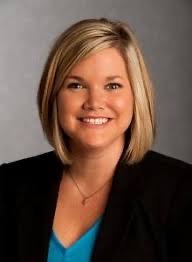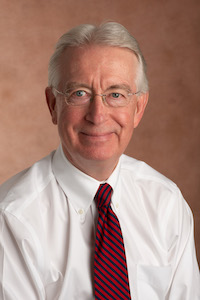 The medical school is joining schools across the country in quickly pivoting to virtual recruitment this fall to attract students and residents in a year that has been vastly changed by the COVID-19 pandemic.
The medical school is joining schools across the country in quickly pivoting to virtual recruitment this fall to attract students and residents in a year that has been vastly changed by the COVID-19 pandemic.
Student interviews that were conducted on-campus in past years are going virtual this year, as recommended by the Association of American Medical Colleges (AAMC). As the WMed Admissions team made plans to shift to a virtual interview process for the MD Class of 2025, they wanted to ensure they had the same ability to learn more about each candidate, said Jean Shelton, the medical school’s assistant dean for Admissions and Student Life. At WMed this means leaders will still be conducting phone interviews, then inviting select candidates to a virtual interview. The virtual interview will include informational sessions as well as a traditional one-on-one interview. The medical school is replacing structured interviews with the AAMC Video Interview Tool for Admissions (VITA). Candidates get access to preparation materials to review ahead of time so that the virtual interviews can be more personal, Shelton said.

This year, the medical school’s supplemental application, which asks applicants to explain why they would like to attend WMed and what they would bring to the practice of medicine, includes a question asking how COVID-19 impacted the applicant, his or her academic plan and planned experiences.
“We’ve really had to shift everything,” Shelton said. “We’re still focused on recruiting students who not only have the academic metrics but the personal attributes and the premedical experiences that add and grow to the diversity and warmth of our community. However, we’ve had to cancel all of our fall recruitment events on and off campus.”
Shelton said the Medical Student Admissions Committee is committed to a fair and equitable application process, even as applicants deal with the uncertainty of applying to medical school in the midst of a pandemic.
“We remain dedicated to making sure our process is as transparent as possible and we are communicating with applicants as often as possible,” Shelton said. “The impact COVID has had on these students only adds to an already stressful time.”
On average, students applied to 18 medical schools last year, Shelton said, noting medical school leaders want to make sure prospective students understand what they can expect if they choose WMed.
Faculty members, students and staff have created videos and reading materials about WMed, Shelton said. When COVID-19 hit, the medical school’s Second Look Day was canceled and within hours students reached out to Shelton to ask how they could help applicants feel like they were part of the WMed community. Shelton said the medical school’s culture and people are the most highly rated parts of applicants’ visits to campus, and that is something the WMed Admissions team is striving to make sure is felt, even virtually.
“It’s easy to focus on the negative takeaways from the changes, but there are definite positives,” Shelton said. “The interview process for applicants is costly and that’s prohibitive for students and its reassuring to see that that barrier is taken down. I think we’ll see more virtual elements moving forward, such as a partial virtual interview day or recruitment pieces. I think if the world is safe to do so, we will be looking at accepting student visits in the spring or more intentionally throughout the cycle.”

Shelton advised medical school applicants to consider the upside of not traveling as much to interviews, therefore saving money that would have been spent in a year not affected by COVID-19. She said the best advice she has for premedical students is to be their own advocate.
“Be sure to get answers to the questions that are not just provided to you but what’s important to you in a medical school, and ask multiple people those same questions,” Shelton said.
On the residency side, the Coalition for Physician Accountability has strongly recommended that all resident interviews be conducted virtually, and also has recommended that visiting rotations rotations be severely limited. In normal years not affected by COVID-19, resident interviews typically include multiple in-person interviews, tours of the community and hospitals where the residents would work and events to meet with residents and faculty, said David Overton, MD, the medical school’s associate dean for Graduate Medical Education and chair of the Department of Emergency Medicine.
“Our residency programs are exploring innovative ways to evaluate residency applicants remotely, while still providing a way for applicants to get the real feel of our programs,” Dr. Overton said.
Interviews during recruiting season will be held via video. Residency programs at WMed are developing a variety of media, from video tours of the residency programs and facilities to presentations about the community and programs, Dr. Overton said.
Dr. Overton said one potential upside of virtual interviewing is that residency applicants will not have to spend thousands of dollars to travel to interviews at each residency program. Instead of what might have been a three-day interview trip, an applicant might only have to spend a half a day interviewing with a given residency program, he said.
Because of these differences, programs are asking students to limit the number of applications and interviews they commit to, Dr. Overton said.
“I think the key for students is to have a good faculty adviser who can help them strategize to find a good fit in terms of their competitiveness for the specialty they’re applying to and the competitiveness of them as an applicant,” Dr. Overton said.
As an example, in WMed’s emergency medicine residency program, residents, faculty and staff have put together videos introducing students to the residency as well as life in Kalamazoo and Southwest Michigan, Dr. Overton said. Applicants will virtually interview with a minimum of four faculty members and two residents, will participate in virtual hospital tours with residents and, interact with residents at virtual meet and greet events.
“We’re trying to reproduce our traditional interview process as closely as we possibly can in a virtual way,” Dr. Overton said.
